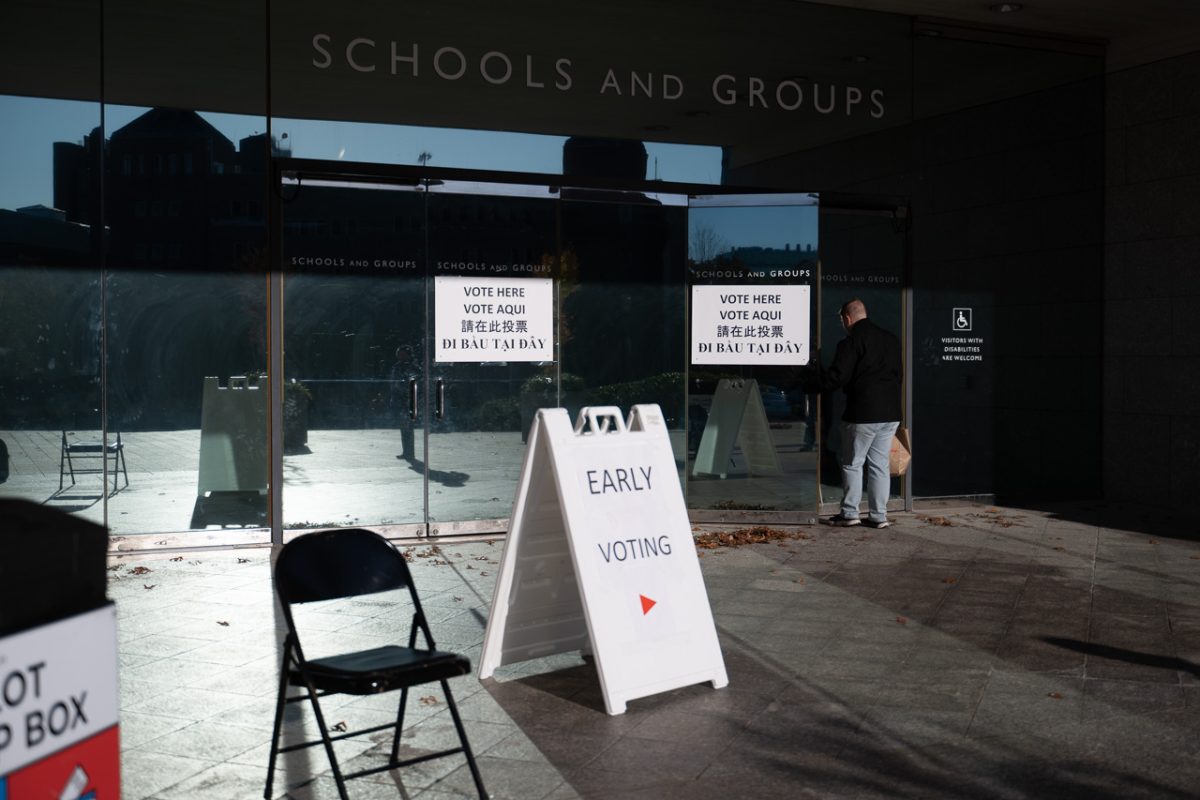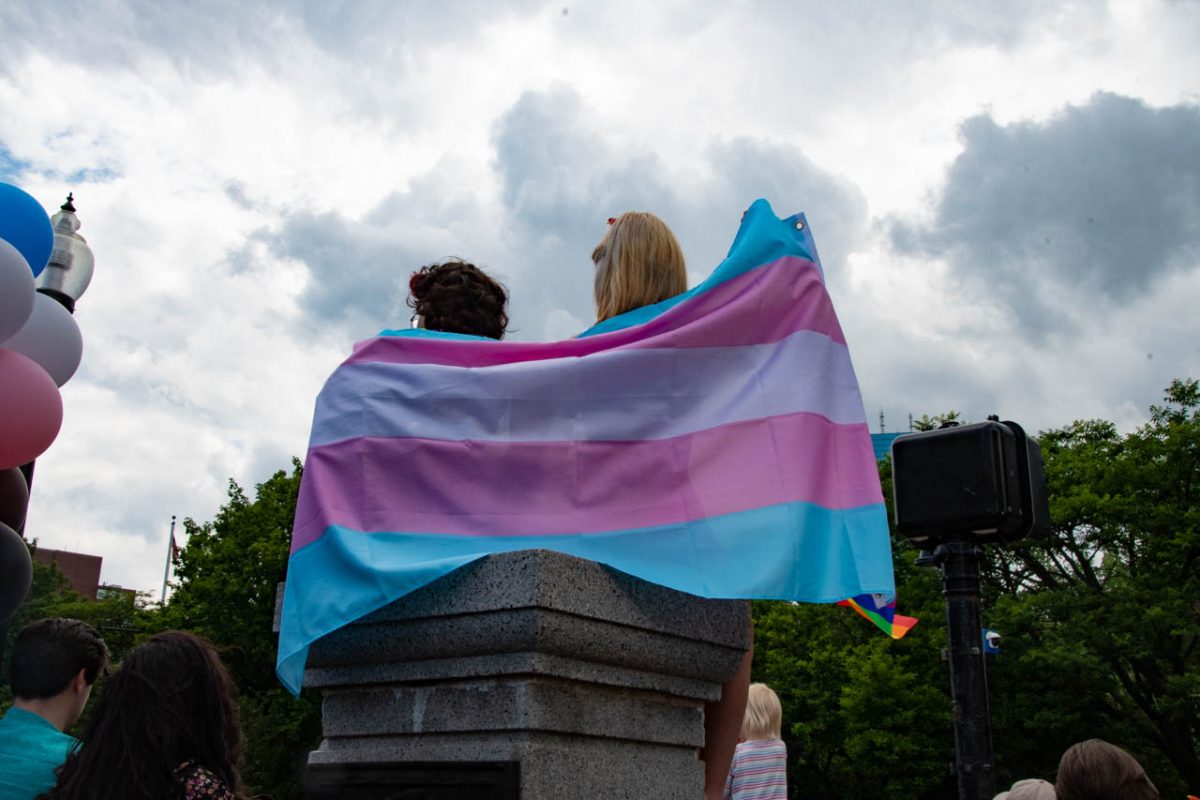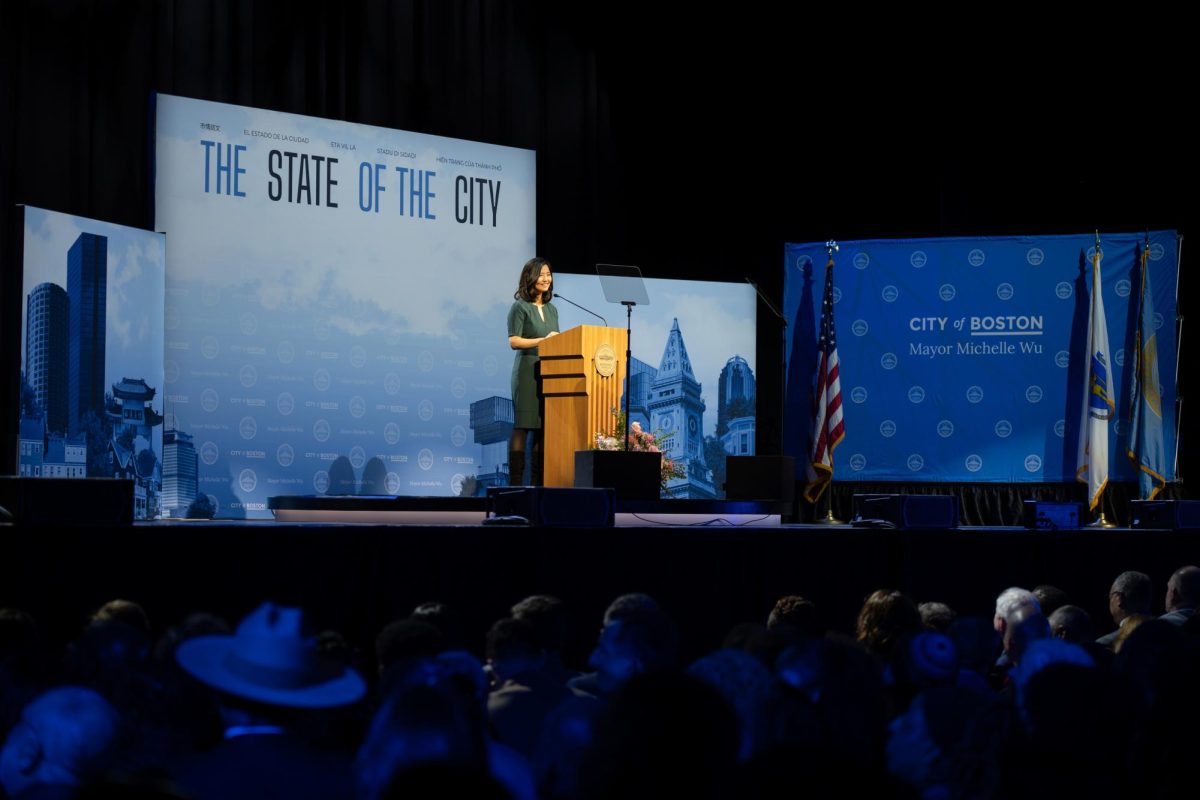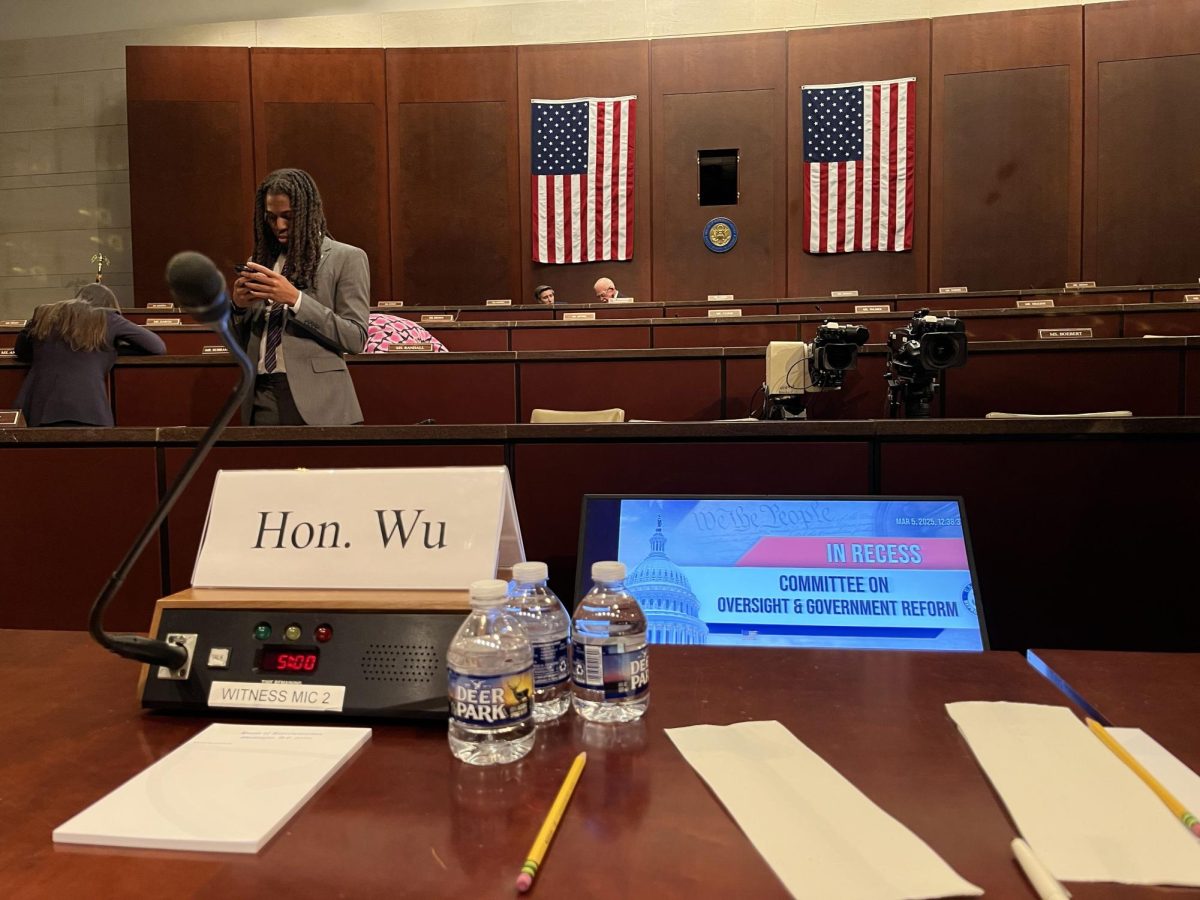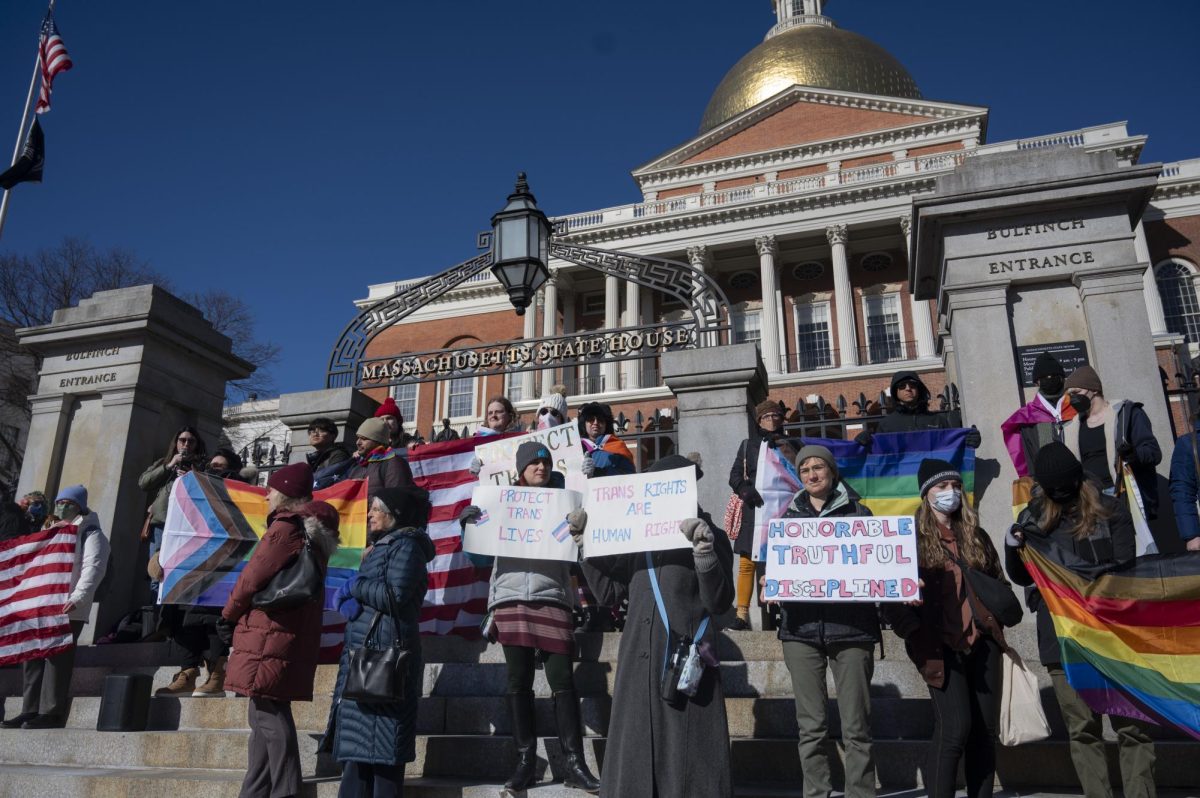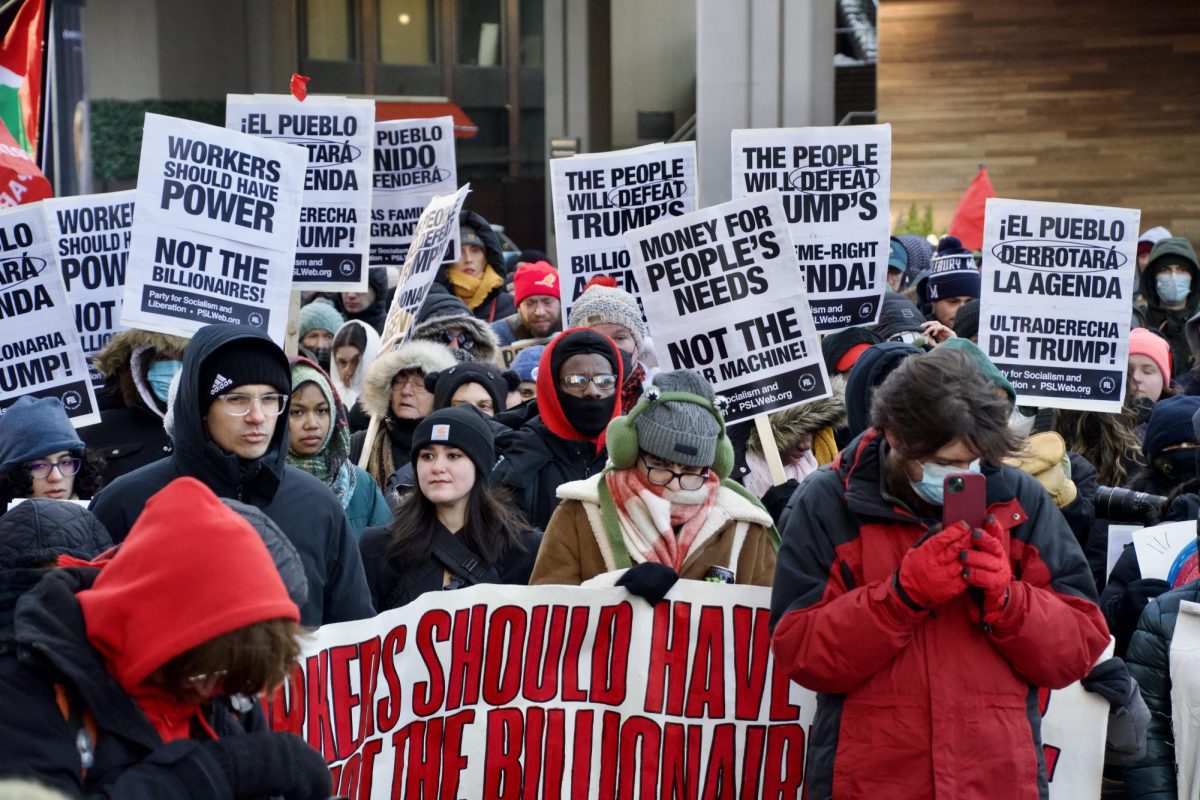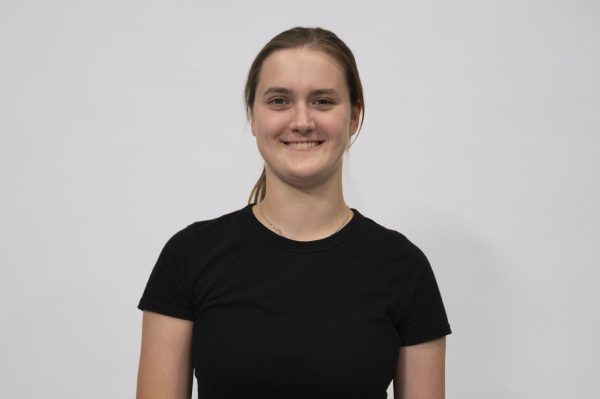The City of Boston is hosting in-person early voting at dozens of locations between Oct. 19 and Nov. 1 in an effort to increase voting accessibility.
Two such locations were the Museum of Fine Arts, or MFA, Oct. 26 and 27 and the Institute of Contemporary Art, or ICA, Oct. 22 and 29. Boston Mayor Michelle Wu highlighted these two locations in an Instagram post Oct. 15.
While the general election is set for Nov. 5, Boston voters are already taking to the polls to decide on elections at all levels. Between local races, five state ballot questions and a heated presidential race, Boston voters face pressure to make a variety of choices at the polls this cycle. Election workers like Linda Horan, the election warden at the ICA, say they volunteer to help make the process easier for voters.
Horan said that she has been volunteering as an election worker for “a very long time.”
“A warden’s job is to be responsible for the lack of chaos and [make] sure that voters are timely addressed, [make] sure they are able to vote and get out the door without too many complications,” Horan said.
The ICA helped 147 voters in the first four hours of early voting Oct. 22, which election workers said was very slow. Horan said that the program is “not cost-efficient, but it’s a very good program for the public.”
Both the ICA and the MFA had a plethora of signage and multiple election workers to guide voters to the designated voting areas. Signage was written in multiple languages including Spanish, Chinese and Vietnamese. Both locations also had ballot drop boxes for voters to turn in their mail-in ballots.
Voters at the ICA entered through the main entrance and followed signage to the second floor. The designated voting area was at the Barbara Lee Family Foundation Theater on the second and third floor. At the MFA, voters entered through a side entrance on Museum Road.
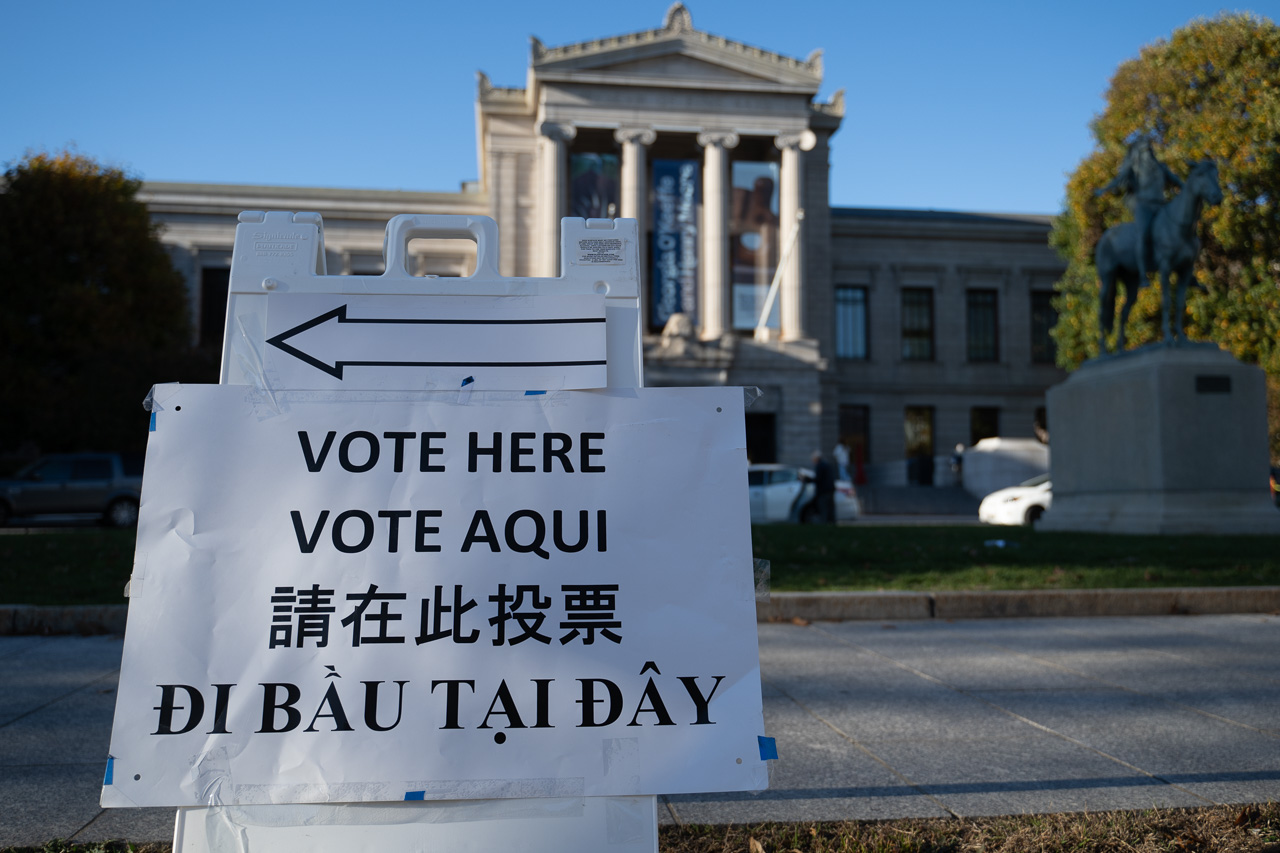
Many states have stricter deadlines and more requirements for early voting than Massachusetts. According to a 2022 report by Campaign Legal Center, Massachusetts, New Jersey and Rhode Island rank among the highest for accessibility of vote-by-mail and early voting policies. In Massachusetts, voters do not need their ID to receive a ballot and, up until Oct. 26, could register to vote in-person at their early voting location. In other states like Texas, which require a form of ID and supporting form of ID such as a bank statement for voters to receive their ballot, there are higher barriers to vote.
“Anything that encourages people to vote is worth doing,” said Catherine Radford, another election worker for the City of Boston and warden for Charlestown. “We don’t have voter suppression in Massachusetts, we have voter encouragement.”
Any registered Boston voter can vote at the early voting locations, according to the City of Boston’s early voting page. The City is hosting early voting in at least one location in every Boston neighborhood to ensure voter convenience as displayed on the voting location map.
“Our funding trickles down from the federal government,” said Andrew Fintzel, another election worker at the ICA. “You’ve got to have [early voting] even if it’s not cost-efficient.”
The MFA helped 80 voters in the first hour of voting Oct. 27, which Election Warden Nancy Nee said was less than the previous day.
“On Saturday we had about 100 people per hour coming in to vote,” said Nee, who has been volunteering as an election worker since 2008.
The City of Boston has 34 different combinations of ballots, Nee said. Different ballot variations are based on Boston’s 22 wards and hundreds of precincts. Each early voting location is expected to have every ballot combination in order to ensure accessibility and standardization. Early voting locations are also expected to have signage displayed that details voting rules and directions.
Nee said that election workers have several checks while distributing ballots to ensure voters receive the correct ballot when voting.
“We use two stickers as a check and balance to verify the ward and precinct are correct,” Nee said. “We have as many checks as possible because at the end of the day, it’s humans working at these election sites.”
At the end of each voting day ballots are counted and travel by police escort to a secured election department site to be sorted. Ballots are not opened or tabulated until Election Day.
“I think early voting is fabulous,” Nee said. “There might be subtle differences between locations you go, but for the most part we try to keep it as similar as possible.”
The Huntington News is dedicated to serving the Northeastern University community with original, professional reporting and creating an environment in which student journalists can learn from one another. Support an independent, free press at Northeastern University with your donation today.



